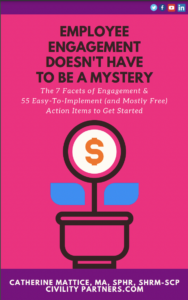Have you come across terms like “rizz,” “no cap,” “it’s giving,” or “lit” lately? Well, these are the words popularized by Generation Z. As a Gen Z myself, I find myself using these phrases not only in my daily life but also in my professional endeavors.
It’s an exciting time for businesses and organizations as the new generation steps into the workforce. Gen Z’s unique upbringing, technological prowess, and distinct values bring a fresh perspective to the professional world. Gen Z currently makes up 30 percent of the world’s population and is expected to account for 27 percent of the workforce by 2025.
Back in the day, Baby Boomers were all about having job security. Generation X aimed for a balance between work and life while trying to move ahead in their careers. Nowadays, Millennials and Generation Z look for companies that do the right thing and go for ones that create a positive work culture.
Here’s an interesting fact from research: it keeps showing that young folks today aren’t all that different from young folks in the past. It’s mainly about how people in their twenties see things compared to those in their sixties. So, what Gen Z wants isn’t too different from what the older generations desired. It’s like giving an old favorite song a modern twist!
Understanding Gen Z
First off, let’s get to know the Gen Z workforce. Born between 1997 and 2012, they are the most diverse generation yet. According to Roberta Katz, a researcher from the University of Oxford, “a typical Gen Zer is a self-driver who deeply cares about others, strives for a diverse community, is highly collaborative and social, values flexibility, relevance, authenticity and non-hierarchical leadership.”
According to McKinsey, Gen Z’s identity has been shaped by four key factors: The digital age, climate anxiety, the COVID-19 pandemic, and the rapidly shifting financial landscape.
What does Gen Z want from their careers?
To gain insight into what Gen Z wants from their careers, we must delve into their values, expectations, and motivations.
Technology-Centric Environment
Being born in the digital age, Gen Z expects modern technology tools and platforms in the workplace to enhance productivity. Because of Gen Zs’ comfort with technology and apps, they’ll be most likely to make the best use of new tools.
It’s evident that the future of work is undeniably tech-driven, and Gen Z is at the forefront of this transformation!
Work Flexibility
Gen Z values work-life balance more than ever. They truly value the flexibility of working hours, the option to work remotely, and the freedom to customize their work schedules to align with their personal lives.
Gen Zers are enthusiastic about having the independence to manage their work hours and often look for opportunities that offer remote or hybrid work setups. Achieving harmony between their professional and personal lives is a significant factor that shapes their career choices.
Positive Work Culture
Numerous studies have consistently shown that Gen Zers prioritize employers who foster a positive and inclusive work culture above all else. For them, a warm and supportive workplace is more valuable than a job with a high salary.
What’s even more impressive is that 83% of Gen Zers are inclined to stay with an employer that actively promotes diversity and inclusion. This generation places a deep emphasis on nurturing equality, fairness, and representation within their workplaces.
Check out our DEI Terminology Cheat Sheet here. Companies that make these principles a central focus are not only better positioned to attract Gen Z talent but also retain it.
Mental Health and Well-being
Gen Z places a tremendous emphasis on mental health and well-being. They’ve observed the impact of burnout and stress on older generations and are committed to making their mental well-being a priority right from the beginning of their careers.
In fact, according to SHRM research, 61% of Generation Z respondents stated that they would strongly contemplate leaving their current job if presented with a new opportunity that offered significantly better mental health benefits.
Engaging with Gen Z employees
Do you know how your workforce truly feels? One effective way to uncover their sentiments is by conducting a climate assessment.
They help you understand not only the concerns and obstacles, but also how they impact productivity, performance, and relationships within your organization. By addressing these issues, you can foster a more engaged and productive workforce, catering to the needs and concerns of all, including Gen Z.
Promote Learning and Development
Gen Z have an innate passion for learning. This presents an exciting opportunity for organizations to create an environment that fosters continuous learning within the workplace.
To cater to their eagerness to learn and advance in their careers, it’s essential to grant employees access to training and development programs. These initiatives enable them to acquire new skills and remain competitive in the ever-evolving job market.
Establishing mentorship programs, where Gen Z employees can glean wisdom from seasoned colleagues, not only helps them navigate the intricacies of the workplace but also fuels their professional growth.
Provide Timely Feedback
Providing timely feedback means offering constructive comments and praise promptly after observing an employee’s performance or behavior. It will keep them in the loop about how they’re doing and where they can shine even brighter.
Gen Z employees are more likely to engage fully when they understand how their work contributes to the organization’s larger objectives.
If you’re a new manager, it can be challenging to do so. Luckily, our CEO, Catherine Mattice’s newly launched Coursera course: Managing Employee Performance for New Managers, will give you insight into giving timely feedback.
Proactively Create a Positive Work Culture
Show your commitment to creating a workplace where everyone feels valued, respected, and heard. These values are at the core of Gen Z’s passions, and a positive culture aligned with these principles will deeply resonate with them.
So, how about we partner to enhance your team culture and attract top talent? Leveraging our expertise, we’ll collaborate with you to craft a workplace culture that not only appeals to Gen Z but also welcomes individuals from diverse backgrounds and generations, catering to the diverse talent your team needs.
Here’s a freebie for you, our: Employee Engagement Doesn’t Have To Be A Mystery Ebook!
Written by: Jennifer Areola




